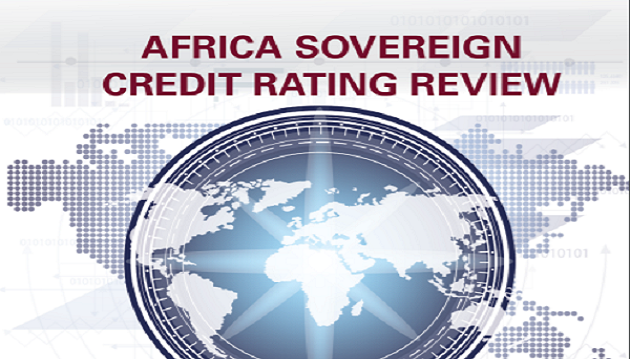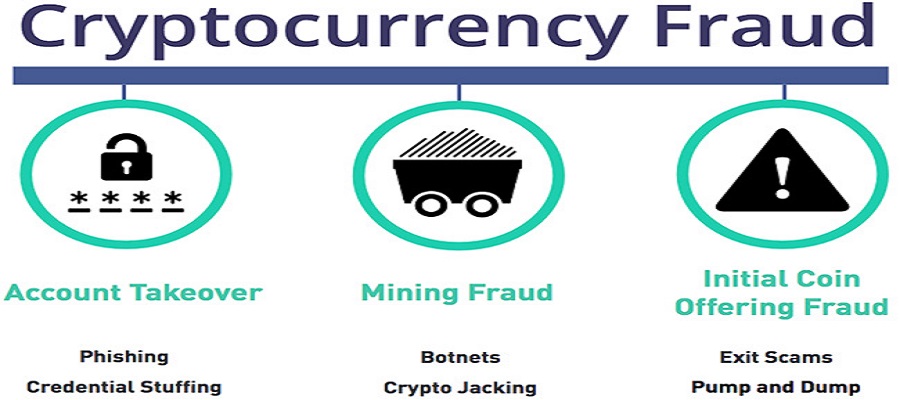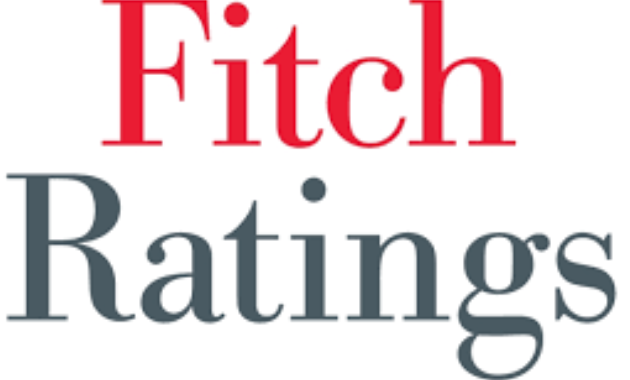E-Financial
Fidelity Bank Eyes Oversubscription to N127.1Bn Combined Offers

Against the background of groundswell of supports and enthusiasm for the bank’s ongoing offers, Fidelity Bank Plc has started preparations to allow the bank absorb oversubscriptions.

With investors rallying behind the bank’s N127.1 billion combined rights and public offer, market pundits had indicated that the bank would raise more than initial size of the combined offer.
Reports have shown high subscription levels for the offers early weeks of the offer period, riding on the back of acceptances by existing shareholders and demand by the general investing public.
Fidelity Bank is offering a rights issue of 3.2 billion ordinary shares of 50 kobo each at N9.25 per share. The bank is also simultaneously offering 10 billion ordinary shares of 50 kobo each to the general investing public at N9.75 per share.
The acceptance and application lists for the rights issue and public offer, which opened on Thursday, June 20, 2024, are scheduled to close on Monday, July 29, 2024. The rights issue has been pre-allotted on the basis of one new ordinary share for every 10 existing ordinary shares held as at the close of business on Friday, January 05, 2024.
With promising feedbacks from receiving agents and as shareholders, investors, experts and other stakeholders continue to rate the combined offers high, the board of Fidelity Bank has called an extraordinary general meeting (EGM) to enable the bank to absorb expected surplus funds.
Shareholders are scheduled to meet later this month to authorise the company “to accept surplus monies arising from potential oversubscription of the combined offer in such proportion as may be determined by the board of directors, subject to the company’s issued share capital and obtaining relevant regulatory approvals”.
Shareholders are also expected to increase the issued share capital of the company from N22.6 billion divided into 45.2 billion ordinary shares of 50 Kobo each to N26.70 billion through the creation of up to 8.2 billion in order to “accommodate potential oversubscription of the combined offer in the proportion of 5.0 billion additional ordinary shares under the public offer and 3.2 billion additional ordinary shares under the rights issue”.
The meeting will also mandate the board to take all necessary actions in line with the absorption of the oversubscription funds.
The board of the bank reiterated its commitment to retain the bank’s international banking license by meeting the new capital requirement within the regulatory timeframe.
According to the board, the resolutions proposed for shareholders’ approval at the upcoming EGM of July 26, 2024, are to enable acceptance of potential oversubscription from the combined offer, subject to relevant regulatory approvals.
The board pointed out that with the resolutions to accept oversubscription, the bank will be in stronger position to take advantage of emerging business opportunities and secure long-term profitability and competitive advantage, while ensuring increased shareholder value.
The net proceeds of the offer would be applied to investments in information technology infrastructure, business and regional expansion, and product distribution channels.
“The company is on a strong growth trajectory and requires additional capital for improved profitability, expansion- domestic and international, and enhancement of its digital capabilities.
“Continuing advances in technology, the rapid evolution of the business of banking, and changes in the operating landscape also make it imperative that the bank remains agile, adaptable and properly positioned to respond appropriately to developments, whilst remaining a competitive and forward-looking institution,” the board stated.
Directors of the bank assured that notwithstanding the continued rapid evolution of the banking industry, Fidelity Bank has been placed on foundation for strong and sustainable growth.
Fidelity Bank Plc’s combined N127.1 billion rights and public offer had struck early success as enthusiastic shareholders mobilise to pick their pre-allotted shares and buy more stakes in Nigeria’s most-widely owned commercial bank.
Shareholders have said they would pick their rights and buy more shares from the public offer in a massive show of support and positioning in the bank. Fidelity Bank had delivered an average annual capital gain of more than 100 per cent over the past five years and ranked among the elite stocks with the highest corporate governance rating at the Nigerian stock market.
In separate interviews, shareholders across Nigeria’s leading shareholders’ associations, said the pricing of the highly discounted rights issue and public offer, the operational growth of the bank over the years, dividend records and capital gains were attractions to buy more stakes in the bank. Fidelity Bank is one of the few companies that pay dividends twice a year at the stock market.
They envisioned that a post-recapitalisation Fidelity Bank would deliver higher returns and continue to be a leading preserver of values for shareholders’ wealth.
The shareholders, who spoke through their leaders, said recapitalisation has offered good opportunity to the investing public to buy into good banking stocks at reduced prices, noting that banks are the most influential stocks at the Nigerian market. Subscribers to primary market issues are exempted from paying transaction costs, unlike direct purchase through the secondary market.
Shareholders, under the auspices of Independent Shareholders Association of Nigeria (ISAN), Ibadan Zone Shareholders Association (IBZA), Association for the Advancement of Rights of Nigerian Shareholders (AARNS), Pragmatic Shareholders Association of Nigeria and Progressive Shareholders Association of Nigeria among others, said they were picking up their rights and mobilising supports for the bank.
The general shareholders’ endorsements represent a major boost for Fidelity Bank, which has the most diversified retail shareholders’ base among Nigerian banks.
With nearly 400,000 shareholders, no single shareholder held up to 5.0 per cent of the issued share capital of the bank. Five per cent and above are considered the material shareholding under extant laws and market regulations.
Rights issue is traditionally pre-allotted on the basis of existing shareholdings and its success, most often, depend largely on the satisfaction and enthusiasm of existing shareholders.
Fidelity Bank appears to be riding high on its highly diversified shareholding base with its popularity showing across all cadres of investors in the market. The shareholders’ comments came on the heels of similar positive comments by investment experts and capital market stakeholders.
The combined rights and public offers had opened to a rousing support from the investing public as key capital market stakeholders recalled the symbolic importance of Fidelity Bank’s impressive growths and investor-friendly disposition over the years.
From the Nigerian Exchange (NGX) to stockbrokers, investors and customers; the N127.1 billion combined rights and public offer received unreserved recommendations, with industry thought leaders citing the performance of Fidelity Bank in its core banking operations and as a quoted company at the stock market.
They said Fidelity Bank’s N127.1 billion combined rights and public offer was the right way for the nation’s banking recapitalisation exercise to start as the bank, which has the highest corporate governance rating and an average annual capital gain of more than 100 per cent at the stock market, has strong appeal to the investing public.
The Doyen of Stockbrokers, the oldest practicing stockbroker, Alhaji Rasheed Yussuff, said Fidelity Bank has good records going for it with its history of impressive growth and profitability and dividend payments.
E-Financial
African Union Launches Credit Rating Agency to Promote Regional Economic Integration

The African Union has taken a significant step towards promoting economic resilience in Africa with the launch of the African Credit Rating Agency (AfCRA).

The new agency aims to provide a fair, transparent, and unbiased credit rating system, addressing the biases of global rating firms that have reportedly cost Africa over $75 billion in investment opportunities.
According to Kenya’s President, William Ruto, who unveiled the agency at an AU event in Addis Ababa, Ethiopia on Friday, “Global credit rating agencies have not only dealt us a bad hand, they have also deliberately failed Africa.”
Ruto criticized the flawed models, outdated assumptions, and systemic bias used by global rating agencies, which paint an unfair picture of African economies and lead to distorted ratings, exaggerated risks, and unjustifiably high borrowing costs.
The launch of AfCRA is a response to the long-standing grievances of African countries regarding their treatment by international credit rating firms.
The agency aims to provide fair, transparent, and development-focused credit ratings that reflect the realities and potential of African economies.
Improving Africa’s rating by one notch could unlock $15.5 billion in additional funding for the continent, according to Ruto.
The idea of creating an African credit rating agency has been in the pipeline for years, with the AU officially announcing its plans to move forward with the project in September 2023.
The push for an African credit rating agency gained momentum in 2022 when Senegal’s former president Macky Sall called for a new system to “end the injustices” faced by African countries.
The African Credit Rating Agency is part of Africa’s continuous march towards economic resilience, which also includes the recent establishment of the African Energy Bank, headquartered in Nigeria.
The bank aims to provide support to unleash Africa’s energy potential and bring an end to energy poverty on the continent.
E-Financial
Nigeria Worst Hit by Crypto Currency Fraud

Fraud in the crypto industry in African continent has soared by 48 percent over the past year and Nigeria is worst hit according to report by CAJ News.

This is according to the Sumsub State of the Crypto Industry 2025 report, which indicates Nigeria recorded the highest rate of fraud across the sector, at 8,3 percent.
Thus, this percentage of verification attempts were flagged as fraudulent.
Uganda, Kenya and Tanzania all have fraud rates of 4,8 percent, with Cameroon (4,5 percent), Ethiopia (3,7 percent), Ghana (3,5 percent), Algeria (2,6 percent), Benin (2,6 percent) and Morocco (2,1 percent) recording significant rates.
The most popular fraud types are document forgery (affecting 31 percent of surveyed companies), phishing (20 percent) and money mulling (15 percent), followed by account takeover (14 percent) and forced verification (12percent).
Simsub, the cyber crime expert, believes this surge highlights the need for companies to adopt artificial intelligence (AI)-powered detection, biometrics and continuous monitoring to enhance security.
The report states that innovations like biometric checks, AI-backed automation and document-free verification have boosted crypto platform users’ on-boarding success rates to 93,39 percent and reduced verification time by 46 percent, overall improving customer on-boarding while reducing drop-off cases.
Hannes Bezuidenhout, Vice President of Business Development (Africa) at Sumsub, said Africa’s growing adoption of crypto provided its own challenges, but the company foresaw increasing demand and growing user expectations across the continent.
“So it’s crucial for VASPs operating in the region to implement secure verification systems and stay vigilant to fraud, while keeping an eye on evolving and new regulations concerning the crypto sector to avoid fines.”
VASP is an acronym for virtual asset service provider.
E-Financial
Banking Consolidation Less Likely as Nigerian Banks Meet Capital Requirements – Fitch

Fitch Ratings has said that Nigerian banks are making significant progress in raising core capital to meet new paid-in capital requirements. The rating agency noted that the banks are generally on track to meet the end-of-first quarter (Q1) 2026 deadline.

This is supporting a recovery in capitalisation from the impact of naira devaluation, providing fuel for business growth. It also reduces the likelihood of significant banking sector consolidation.
In March 2024, the Central Bank of Nigeria announced a significant increase in paid-in capital requirements (share capital plus share premium) for commercial, merchant and non-interest banks.
Banks have three ways to comply – through equity injections, M&A and downgrading their licence authorisation.
Fitch-rated banks have made notable progress towards compliance. Almost all have raised capital or formally launched the process to do so.
The two largest banks, Access Holdings and Zenith Bank, are the first to secure enough fresh capital to meet the N500 billion requirement for an international licence. First HoldCo, United Bank for Africa and Guaranty Trust Holding Company are taking a phased approach.
They have recently raised capital and have shareholder approval to begin raising more to meet the N500 billion requirement. First HoldCo’s and United Bank for Africa’s recent rights issues are awaiting final regulatory approval.
Fidelity Bank and FCMB Group have completed initial capital raisings but will need to raise more to maintain their international licences. As second-tier banks, they must raise significantly more capital relative to their balance sheets than larger banks.
They have extraordinary general meeting approval for this, although they could consider downgrading to a national licence as they each have just one foreign subsidiary.
Ecobank Nigeria Limited (ENG) and Jaiz Bank needed only small capital injections to meet their requirements and have already achieved compliance. We estimate that ENG is still in breach of its total capital adequacy ratio (CAR) requirement of 10 percent but it has further capital-raising plans to restore compliance. Stanbic IBTC Holdings has launched a rights issue to raise capital to maintain its national licence.
Strong investor appetite has ensured that the vast majority of capital raisings so far have been successful, and most first- and second-tier banks should be able to meet their new capital requirements through capital raisings alone. Therefore, we believe the likelihood of banking sector consolidation among first- and second-tier banks has decreased.
Union Bank of Nigeria (UBN), which is also in breach of its 10 percent CAR requirement, and third-tier banks have generally been slower to raise capital. Wema Bank has shareholder approval to raise enough capital to retain its national licence and plans to launch the process in April.
Coronation Merchant Bank recently received board approval. It is not clear whether UBN and unrated third-tier banks have received the necessary approvals. M&A activity and licence downgrades remain more likely among third-tier banks.
The capital raisings are contributing to a recovery in capitalisation from the impact of naira devaluation, which put pressure on capital ratios and increased US dollar credit concentration risks. Strengthened buffers over minimum CAR requirements will mitigate risks from a challenging operating environment, including regulatory intervention and further naira volatility, while providing room for business growth.
The capital raisings are unlikely to lead to banks with Long-Term Issuer Default Ratings (IDRs) of ‘B-’ being upgraded given the constraint of Nigeria’s ‘B-’/Positive Long-Term IDR.
However, they could contribute to Outlook revisions to Positive for some banks, and, providing CAR compliance is restored, to upgrades for UBN and ENG (both rated ‘CCC’). Capital raisings are more likely to affect National Long-Term Ratings, which measure the relative creditworthiness of Nigerian issuers.

 E-Business3 days ago
E-Business3 days agoSchmidt, Ex Google Chief Says AI Risky in Terrorist Hands

 News3 days ago
News3 days agoFG Order MDAs to Close Commercial Banks’ Accounts, Enforce TSA Policy

 Telecom3 days ago
Telecom3 days agoBreaking….Tariff Hike: MTN Apologizes to Nigerians but Silent on Reversal

 E-Financial3 days ago
E-Financial3 days agoNigeria Worst Hit by Crypto Currency Fraud

 General News2 days ago
General News2 days agoResearchers Develop Innovative Treatment for Malaria

 News2 days ago
News2 days agoTikTok Returns on Apple, Google US App Stores as Trump Delays Ban

 Telecom3 days ago
Telecom3 days agoSalesforce Collaborates with Tech Leaders to Launch AI Energy Score for Model Efficiency

 Telecom3 days ago
Telecom3 days agoGombe Commissioner of Police Visits GBB Command Centre, Strengthens Collaboration on ICT-Driven Security Solutions






















